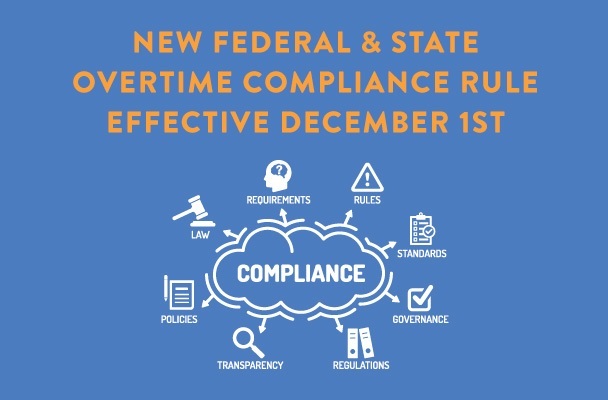On the surface, the Fair Labor Standards Act’s (FLSA’s) white collar overtime exemption rule focuses on raising the salary threshold for exempt status of those in executive, administrative and professional roles. Effective December 1, the new threshold will exceed the current minimum under every state’s wage and hour laws, causing a nationwide shake-up.
Who is affected?
The threshold increase is significant, impacting over 4 million workers, 56% of which are women. The minimum salary requirement will increase to $47,476 per year ($913 per week).
What does this mean for the employer?
This new rule leaves employers with several options for compliance:
1. Convert employees coming in under the threshold to nonexempt status and pay overtime wages
2. Increase compensation to maintain exempt status
3. Realign workload to reduce overtime hours
Because there is no blanket rule for everyone, employers will need to look deeper into both federal and state overtime compliance, current employee salaries and job duties to avoid overspending and litigation.
Want more HR News sent straight to your inbox? Subscribe to our monthly newsletter now!











